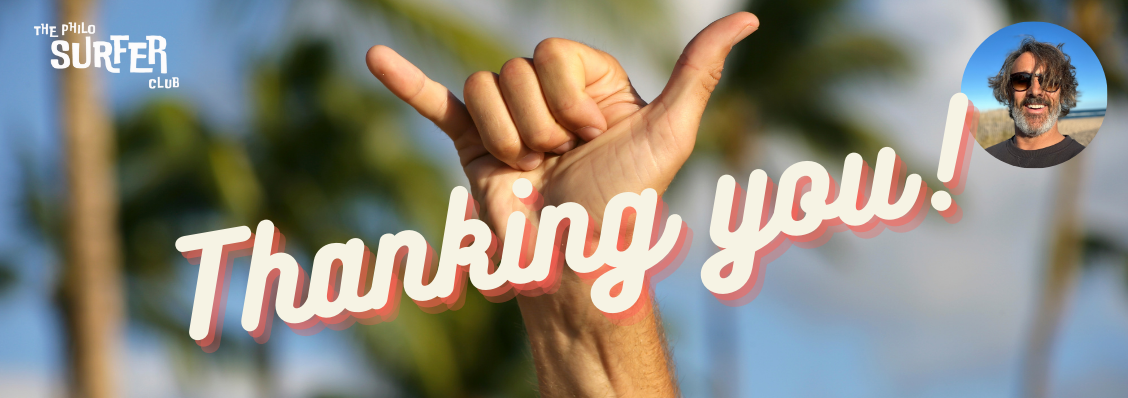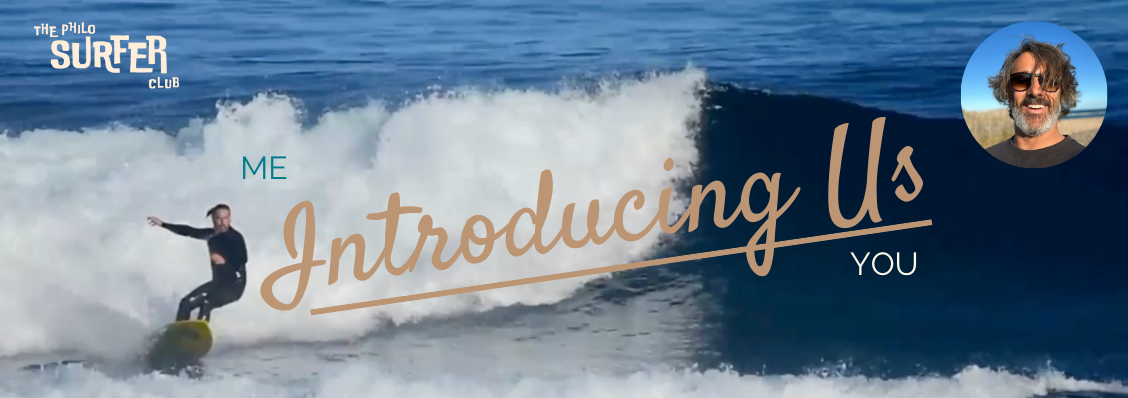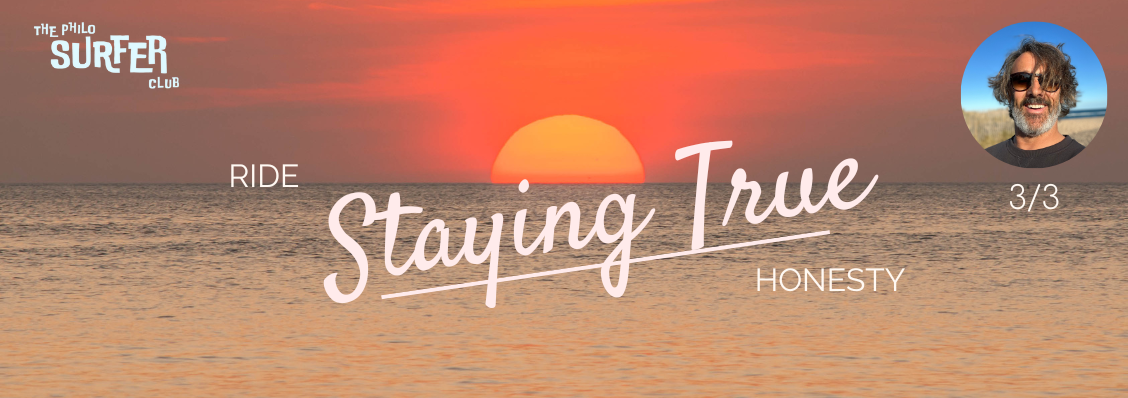Reading time: 4 minutes
Aloha!
Your friendly philosophy kook here with another tubular edition of The Philosurfer Club Journal.
Today I’m droppin’ some heavy knowledge on how Socrates and Duke Kahanamoku, those gnarly grandmasters of philosophy and surfing, both followed a totally radical 6-step program for cultivating mad humility skills on their path to greatness.
After grinding some major study sessions analyzing their lives, here’s the final version of:
Greatness Through Humility:
How Socrates & The Duke Became Legends ‘Da GOATs’
Some Quick Facts
– Socrates was a thinker/teacher who flourished back around 469 B.C. in ancient Greece. A.k.a. Gadfly & Midwife, he challenged assumptions and inspired great minds like Plato.
– Duke Kahanamoku absolutely ripped as a surfer and Olympic swimmer from Hawaii in the early 1900s, winning 3 gold medals (he would have won more had the 1916 Olympics not been canceled because of WW1). He spread the stoke of surfing across the globe, becoming The Big Kahuna.
In a nutshell, these dudes were the cream of the crop when it came to philosophical enlightenment and hanging ten.
They transformed their disciplines & the world with them.
But how’d they do it?
Socrates & The Duke’s Bodacious 6-Step Plan for Total Humility:
1. Acknowledging They Had More to Learn
– Socrates was all about the questions, not the answers. He admitted what he didn’t know, even after the Delphi Oracle declared him “the wisest man alive.”
– Duke was in awe of the ocean’s power. “Never turn your back on the ocean” was his most famous advice.
2. Keeping It Real with a Modest Vibe
– Socrates avoided flashy robes and dropped knowledge in everyday language. Never wrote it down or charged a penny for his lessons disguised as conversations.
– Duke carried himself with an easy Aloha spirit rather than bragging. Saved many lives as a lifeguard, another realm that owes so much to the Duke.
3. Leveling Up Their Skills
– Socrates fine-tuned his brain by always re-evaluating his beliefs. He firmly believed in examining your mind & changing it for the better.
– Duke refined his swimming technique through meticulous practice in the ocean. He introduced a new swimming style with a flutter kick and powerful strokes that rapidly became the standard.
4. Respecting All Peoples
– Socrates kicked it with fools, kings, and everyone in between, including courtesans.
– Duke welcomed diverse crowds to surfing with warmth. He gave surfing lessons to many celebrities & some noble men always with a bright smile on his face.
5. Spreading Humble Ideas
– As a Greek philosopher, Socrates shared wisdom and recommended, among other things, to always search for the Good, never be unjust, and never retaliate.
– As a Hawaiian, Duke introduced surfing’s stoke beyond the islands with grace. He surfed on both US coasts and Australia, organizing events to popularize the sport to the many amazed spectators.
6. Embracing the Simple Life
– Socrates chilled in his humble tunic rather than chasing riches. Went every day to the market, checked the foods & goods, but never bought a thing. That’s how he reminded himself he could be completely happy without all those things.
– Duke loved the uncomplicated joy of surfing and sunsets. At young age, he was just another beach boy at Waikiki, hustling with tourists for surfing lessons & outrigger-canoe rides. As an adult, he served the Honolulu community as a loved sheriff for almost 30 years.

In short:
- In short, modeling humility in everything they did allowed Socrates and The Duke to better the world forever while staying true to themselves.
- We’d all do well to follow their lead.
May the swell be with you.
Catch ya later, Philosurfer!
Additional recommendations:
- “Waterman” by David Davis: This biography tells the inspiring story of Duke Kahanamoku, a legendary Hawaiian waterman and Olympic champion who popularized surfing and embodied the virtues of humility, sportsmanship, and respect for the ocean.
- “Saltwater in the Blood” by Easkey Britton: In this memoir, Easkey Britton shares her experiences as a female surfer and environmental activist. Her journey highlights the importance of staying connected to nature and embracing humility in the face of the vast ocean.
- “Kook” by Peter Heller: This novel follows the adventures of a middle-aged man who decides to learn how to surf, despite being a complete beginner (or “kook”). It’s a humorous and heartwarming story that reminds us of the value of humility in learning new skills.
- “Plato’s Apology”: In this classic work of philosophy, Plato recounts Socrates’ defense during his trial in Athens. Socrates’ humility and commitment to questioning his own knowledge serve as timeless lessons in intellectual modesty.
- “Epictetus’ Enchiridion”: This Stoic manual by Epictetus offers practical wisdom on how to live a virtuous life. It emphasizes the importance of humility, self-awareness, and acceptance of what is beyond our control.
- “Hume’s Enquiry Concerning the Principles of Morals”: In this philosophical inquiry, David Hume explores the nature of morality and ethics. His exploration of human nature and the limits of our understanding encourages humility in our moral judgments.
















